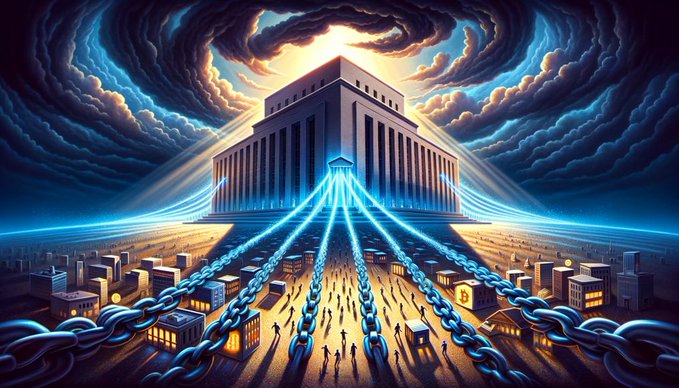As we move from an analogy to a digital world, a new innovation is capturing headlines: Central Bank Digital Currencies, also known as CBDCs. This is a digital form of national currency, issued by a country's central bank. They are the digital counterpart to traditional fiat money, which is government-regulated and not linked to tangible assets like gold. While some see CBDCs as the next logical step in the evolution of money, others view them as a potential mechanism for authoritarian control.
So, what's a CBDC in simple terms? Think of it as a digital voucher authorised by a national bank. China is currently leading the way, nearing completion of its CBDC testing, with other nations hot on its heels.
CBDCs any vastly different from the digital currency we use today? They could offer a range of advanced features designed to tighten financial oversight. Imagine personalised currencies, accounts that can be frozen at will, automatic deductions for taxes and fines, monitored spending, and even financial limits imposed. While some of these functionalities exist in today's banking system, CBDCs would take them to the next level, offering unprecedented control over individual financial behaviour.
But it's not all negative. CBDCs will offer potential advantages such as simplifying our out dated banking system, especially international payments which can be slow and expensive. However, these benefits will come at a cost—a future where every financial transaction you make can be scrutinised whether you like it or not. Governments will likely sell CBDCs to the public by offering greater convenience, but the reality might be far less appealing—a step closer to a full surveillance state. Adopting CBDCs could allow governments to influence spending patterns and enforce policies that may not align with individual freedoms. Your money would become "programmable," allowing authorities to direct consumer behaviour in ways they deem appropriate, thereby potentially eroding personal financial freedom.
While CBDCs are being marketed as eco-friendly and a solution to inflation, they are essentially the same fiat currency we're already familiar with, but with added programmable features. They're unlikely to relieve inflationary pressures as it will still be an inflatable fiat currency. In fact, due to their lack of backing, they are likely to make inflation worse. The main difference is that they can even be set to expire, forcing you to spend your money within a specific timeframe.
The impact of widespread CBDC adoption will be significant. Traditional banking will need to undergo radical changes, with central banks able to monitor every single transaction. Money would become deeply politicised, and the concept of transactional privacy would disappear. CBDCs could be utilised to enforce government priorities, such as encouraging the purchase of electric vehicles while discouraging petrol or diesel cars. They might also be introduced through mechanisms like Universal Basic Income, creating a dependency on government-issued digital currency.
However, there's a lifeline: Bitcoin. A decentralised currency which allows for global transactions without government interference and can't be seized or set to expire. It offers financial freedom, but only if you keep it in a private wallet, separate from exchanges. While we may not be able to prevent the arrival of CBDCs, we do have a choice to protect our financial independence through alternatives like bitcoin. In an ever-more interconnected world, being well-informed is essential. Bitcoin offers a peaceful, yet potent way to maintain financial freedom as it is a money outside of government control.






